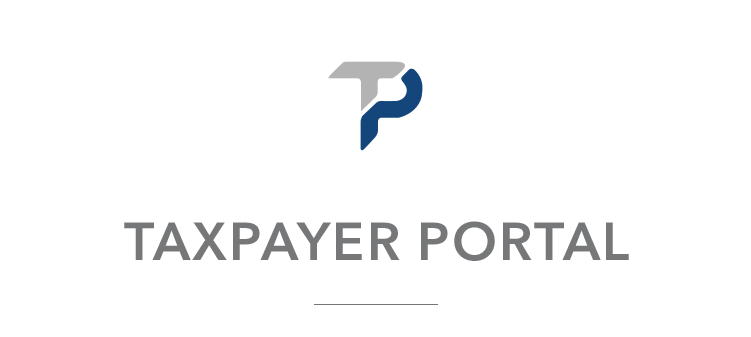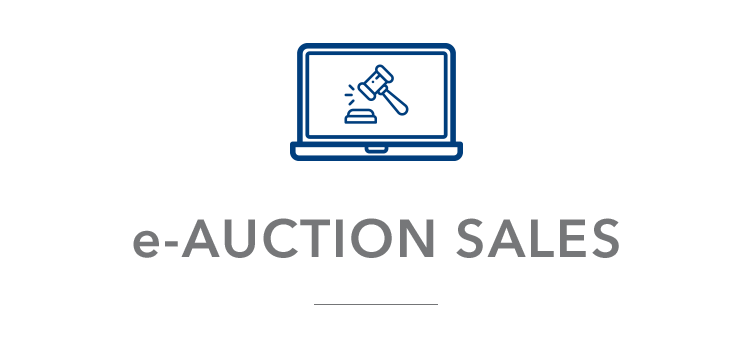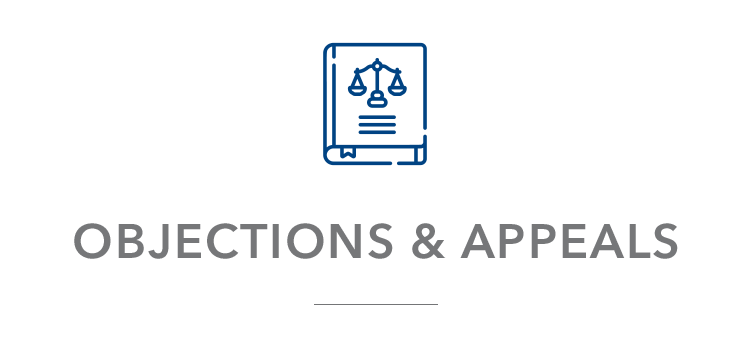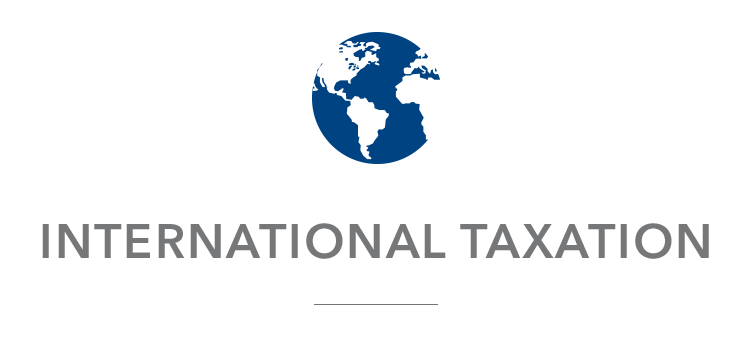FAQ's - Import
-
I am a frequent importer, what should I do to be able to make use of e-payment?
-
Is there a risk for foodstuffs (fruits and vegetables) to be damaged by the scanner?
-
Can I import live animals (fish, birds, and other pets) and plants for commercial purposes?
-
I am a frequent importer, what should I do to be able to make use of e-payment?
You only have to inform your bank about the transaction you want to effectuate and you provide your customs broker/agent with the bank account to be credited.
-
What is AEO? Is this status for importers only?
The AEO status is trade facilitation measure which aims at encouraging best practices in customs procedures by granting recognition to compliant stakeholders. This will increase the credibility of the accredited operators among their suppliers and buyers. AEOs may also benefit from simplified customs procedures.
Anyone involved in the international supply chain that carries out customs related activities can apply for the AEO status, namely:
- Importers
- Manufacturers
- Exporters
- Freight Forwarders
- Warehouse Keepers
- Customs Agents
- Carriers
-
What is the Cargo Fast Track Initiative?
It has been noted that customs procedures are the same irrespective of whether an importer is compliant or not. Therefore to tackle this shortcoming, and to be in line with the recommendations of the Revised Kyoto Convention, which states that additional facilities have to be provided to compliant importers to improve compliance level, the Customs Department is launching a new project the 'Fast Track Cargo Initiative'. Under this initiative, compliant importers who have successfully followed the compliance and monitoring programme will no longer be required to submit hard copy of the import declaration together with supporting commercial documents. However, these original documents and declarations are to be kept at the importers premises and made available to Customs. Consignments of these importers will be subject to a low rate of inspection and inspection will be performed at the importer’s premises.
-
Is there a risk for foodstuffs (fruits and vegetables) to be damaged by the scanner?
The scanners acquired by customs are safe to scan foodstuffs of any kind.
-
I am an importer and very often I receive with my imports, advertising materials, promotional items and free samples which I have not commanded. Besides, these items are not listed in my invoice. Is it a customs offence? What should I do?
Every item imported, whether it is purchased or free, should be declared to customs in the BOE. It is not an offence to import these goods but will be an offence if they are not declared.
In this particular case, importers should liaise with their suppliers so as to include these items in the invoice. Customs will assess the value and duty and VAT will be claimed where applicable.
-
What if I cannot submit my original trade documents at the time of importation? Will I be able to clear my goods?
Normally customs requires all original trade documents with the BOE. However, when these documents are delayed (mailing problems, wrong documents sent by supplier, etc.), customs provides for a solution so as not to penalise importers. The importer is required to make a deposit of Rs. 20,000 (cash or cheque) to Customs in exchange of which the copies of the trade documents may be used in the BOE. If the original documents are not produced within a period of 20 working days, the deposit will be paid into Consolidated Fund and customs may investigate on this particular importation (to see if trade documents have been falsified). If the original documents are produced, the deposit is refunded.
-
If my import shipment does not carry any dutiable commodities, do I need to submit any import declaration?
An import declaration is required for every import. If an import shipment does not carry any dutiable commodities, then the import declaration will bear no customs duty. However, it may be that VAT is payable. Even if VAT also is exempted, the declaration has to be submitted because customs declarations are not only used for declaration and payment purposes but also for statistical purposes.
-
Can I import live animals (fish, birds, and other pets) and plants for commercial purposes?
You can import live animals/plants for commercial purposes provided certain conditions are satisfied. These are listed below:
-
The animals and plants should not be listed in the Appendix I of the Convention on International Trade in Endangered Species of Fauna and Flora (C.I.T.E.S). This appendix prohibits trade in these species because they are in danger of extinction. However, if it can be certified that the particular species have been bred artificially/in captivity, then trade can be allowed provided the consignment is accompanied by the required import and export permits.
-
If the specimens are listed in Appendices II or III of C.I.T.E.S, then they should be accompanied by the necessary permits and certificates.
-
The packaging of live animals and plants should be made according to Guidelines for transport and preparation for shipment of live wild animals and plants so as to prevent the specimen from being hurt or stressed.
-
Arrangements should be made in advance with relevant authorities (veterinary service) for quarantine purposes.
-
Scanner
Scanners are non-intrusive inspection tools which are being used by MRA for clearance of goods at the Port and Airport. In addition of being pre-requisites for security requirements according to the WCO SAFE Framework of Standards, these equipment help customs in detecting offences (undeclared, restricted or prohibited goods) and also in profiling cargo that really require examination.
The benefits of using scanners are reduction in dwell-time, expedited clearance of legitimate goods and the promotion of the seamless movement of goods through secure international trade supply chains.
Private Importers
Imports Via Air or Sea
Shipping companies, airlines, or freight forwarders and Courier Services will usually provide arrival papers (e.g Arrival Advice) around the time the shipment is due to arrive.
You will be required to arrange any necessary permits from other agencies (such as agriculture, health, or veterinary services or permits for firearms from the Police Department). If you are a first time importer, you will be required to register yourself at MRA, Customs.
For registration purposes,you will need to provide Customs with:
- Tax Account Number (TAN)
- Certificate of Incorporation, in case of a company
- Business Registration Number (BRN)
- Copy of invoice and bill of lading or airway bill
- Copy of Identity Card of importer or representative / passport - in case of foreigners
At times of clearance of goods, you will need to provide Customs with:
- Invoice and packing list
- the arrival documentation from the shipping company, airline, or freight forwarder
- evidence of overseas freight and insurance costs and any other relative documents
- permits issued from other agencies, if applicable
Imports Via Postal and Courier Services
Customs provides clearing services at the Parcel Post Office and Courier Services.
An individual has an allowance of Rs. 1,000 on gifts and personal items (excluding merchandise for sale, tobacco in any form, wines, spirits, arms and ammunitions), and duty and VAT are payable if the value of the parcel exceeds this amount. Foodstuffs, agricultural items and pharmaceutical items need clearance from the Ministry of Health and Wellness, the Ministry of Agro Industry and Food Security and the Government Pharmacist respectively.
Where it is clear the importation is for a private individual and the parcel contains sufficient information, an assessment will be made by Customs and the parcel will be released.
If further information is required for an assessment to be made, or permits from other agencies are required (such as firearms permits),the recipient will be informed and the parcel detained until the required permit is obtained.
Goods meant for personal use of any value is cleared without customs declaration (bill of entry). However, duty, excise duty and taxes remains payable, subject to the allowance of Rs 1,000 granted in respect of customs duty and VAT.
Gifts
Gifts are items sent from persons abroad to persons resident in Mauritius that are unsolicited (unasked for) by the recipient and relate to a special occasion eg birthday, wedding, Christmas etc.
-
If the value of the gift does not exceed Rs. 1,000, the gift will be cleared free of Customs charges.
-
If the value of the gift exceeds Rs. 1,000 Customs charges will be payable on the value of the gift that is in excess of Rs. 1,000 e.g. if the gift is valued at Rs. 4,000 Customs charges will be payable on the remaining Rs. 3,000. The Customs charges applicable will vary according to the item being sent.
Calculation of Customs Charges
Where applicable, Customs duty is levied on the transaction value of the goods (the price actually paid or payable). Value Added Tax (VAT) payable at the rate of 15 percent is then calculated on the duty-inclusive value. If there is no transaction (such as the goods being supplied free of charge, or a relationship between the supplier and importer which affects the transaction price), an alternative form of valuation may be used.
For information on the rate of Customs Duty applicable on goods, importers may contact the Tariff Unit. Official forms may be downloaded via the link https://www.mra.mu/index.php/download-centre/customs-forms for Tariff Rulings on classification of goods.
Payment of Customs Charges
Payments for the Customs Charges should be made at the Cashier in Mauritian currency only. Importers can effectuate their payment in Cash, Cheque or electronically (e-payment). In addition to that, payment can be made at the Port-Louis Cashier (Custom House or Ehram Court) or at the Airport Cashier irrespective of where the Bill of Entry is validated.
Temporary Imports(Temporary Admission)
If you import goods that will be re-exported within 6 months (The initial period of 6 months may be extended to a further period of 6 months.) of importation, the goods may be entered on a temporary admission basis.To be able to import goods temporarily, you may be required to provide some form of adequate security (such as a cash deposit or other approved security) to cover any duty, excise duty and taxes pending re-export. The deposit will be fully refunded if the goods are re-exported within 12 months from the date of importation and if customs is satisfied upon verification that the same goods that were imported have been exported.
One of the conditions for goods on temporary admission is that they should respect all the restrictions and prohibitions which apply to goods as if they were cleared for home consumption. That is temporary admitted goods should be accompanied by the appropriate permits or authorisation.
Customs may affix Customs marks, seals, stamps, perforations or other devices to such goods or may take samples for identification purposes. Temporary admitted goods may remain in Mauritius with the approval of customs on payment of duty, excise duty and taxes, and interest computed on the basis of duty, excise duty and taxes payable on such goods, at the rate of 0.5 % per month or part of a month for the period for which payment of duty, excise duty and taxes has been deferred.
Temporary admission may also be terminated (without payment of duty, excise duty and taxes) at the request of the importer, if the goods are abandoned, destroyed or rendered commercially valueless under customs supervision. In addition to that, if customs is satisfied that the temporarily admitted goods have been destroyed or lost by accident or force majeure, no duty shall be payable on such goods.
Any importer who fails to export temporarily admitted goods at the end of the authorised period or any person who sells, purchases, alters, replaces or otherwise modifies any temporarily admitted goods shall commit an offence and shall, on conviction, be liable to a fine which shall not be less than three times the amount of duty, excise duty and taxes underpaid on the goods and any goods which are the subject matter of the offence shall be seized. Mauritius accepts the ATA carnet in lieu of security as a means of facilitating the temporary importation of commercial samples, professional equipment and goods for use or display at an exhibition, and certain other materials and equipment.
ATA Carnet
This is an international Customs document designed to facilitate the temporary importation of goods into other countries where you intend to return all the goods to the country of original export. The same document set is used at arriving and departing ports / airport as it contains a set of detachable import/export vouchers and counterfoils that are completed by Customs at each port / airport. The ATA carnet has a validity of 12 months commencing from the date of issue.
The ATA Carnet is normally used to cover Professional Equipment, goods for exhibitions, fairs, demonstration, and similar events and goods for educational, scientific, and cultural purposes. However it does not cover goods for transhipment, goods for repairs or goods for further processing.
Goods under ATA Carnet are covered by an internationally valid guarantee provided by a recognised body(Mauritius Chamber of Commerce and Industry).
Refund of Customs duty or excise duty may be made when:
-
Customs duty or excise duty is paid by error
-
a concession or an exemption is later approved for the goods
-
the goods are found to be defective, obsolete or not according to specifications and returned to the seller provided importers notify the Director-General in writing within 5 working days from the date of clearance.
-
in the case of a provisional entry, where the importer has paid customs duty or excise duty in excess
-
goods are short shipped, short landed or short packed
-
the claim for refund is made within 3 years from the date of payment of Customs duty or excise duty.
Evidence to support any refund application will be required.
Goods on which import duty is paid and subsequently exported may also be eligible for a drawback of the duty and VAT (examination by Customs at time of export to ascertain if the goods have not been altered/substituted).
Commercial Importers
Customs Requirements for Clearance of Imported Goods
Making a Customs Declaration
A Customs Declaration/Bill of Entry has to be submitted for every importation. Some importers have their own customs clerk but most of them utilise the services of a Customs House broker, or freight forwarding agent. Customs agents/brokers must be registered at Customs to be able to clear goods.
Lodging a Declaration
Import entries and other clearances are a legal declaration to Customs under the Customs Act 1988, providing details of import shipments. Among other offences under the Act, it is an offence to make an erroneous entry or declaration. A penalty may be applied, or prosecution action taken if an erroneous entry or declaration is made.
Temporary Imports
If you import non-consumable goods that will be re-exported within 12 months of importation, you may qualify to enter the goods using a Temporary Import Entry. In this case you may be required to provide some form of security (such as a cash deposit or other approved security) to cover any Customs Duty and/or VAT pending re-export. The deposit will be fully refunded if the goods are re-exported within 12 months from the date of importation.
Mauritius accepts the ATA carnet in lieu of security as a means of facilitating the temporary importation of commercial samples, professional equipment and goods for use or display at an exhibition, and certain other materials and equipment.
ATA Carnet
This is an international Customs document designed to facilitate the temporary importation of goods into other countries where you intend to return all the goods to the country of original export. The same document set is used at arriving and departing ports as it contains a set of detachable import/export vouchers that are completed by Customs at each port. The ATA carnet has a validity of 12 months commencing from the date of issue.
Clearance
The following items require clearances from the relevant authorities:
-
Foodstuffs – Food Import Unit , Ministry of Health & Quality of Life Wellness
-
Meat and Meat Products – Division of Veterinary Services, Ministry of Agro Industry and Food Security
-
Fish and Fish Products – Ministry of Blue Economy, Marine Resources, Fisheries and Shipping
-
-
Agricultural Items (fruits, vegetables, flowers, seeds) – Ministry of Agro Industries - Industry and Food Security
-
Pharmaceutical products – Government Pharmacist
-
Live Animals – Veterinary Division of Veterinary Services/Quarantine Services - Ministry of Agro- Industriy and Food Security
-
Tobacco Products – National Agricultural Products Regulatory Office (NAPRO)
-
Tea – NAPRO
-
Toys and other consumer products (iron bars, electric cables etc)- Mauritius Standards Bureau (MSB)
-
Chemicals – Dangerous Chemical Control Board (DCCB)
Permits
Import permit is required for goods listed in the First Schedule of the Consumer Protection (Control of Import) Regulation 1999.
The usual method for establishing the Customs value is by using the transaction value (the price paid or payable for the imported goods). Overseas freight and insurance charges are deducted if these charges are already included in the transaction value.
Customs will accept the transaction value on these conditions:
- there must be a sale for export to Mauritius. Goods which have not been sold for export cannot be valued by this method (such as goods on consignment, or goods supplied free of charge)
- it must be shown that the transaction value has not been affected by any relationship between the importer and supplier.
Where the transaction value cannot be used, there are alternatives for determining the Customs value:
- value of identical goods
- value of similar goods
- the deductive method of valuation
- the computed method of valuation
- the fall back method of valuation
When applying the fall back method of valuation (as a last resort), the other valuation methods may be used in a more flexible and tolerant manner. However, the value of the goods being valued shall not be determined on the basis of :
- the selling price in Mauritius of those goods produced in Mauritius
- a system which provides for the acceptance for duty purposes of the higher of two alternative values
- the price of those goods on the domestic market of the country of export
- the costs of production other than the computed method of valuation
- the price of the goods for export to a country other than Mauritius: or
- arbitrary or fictitious values.
Where Customs Officers find that goods have been declared at a value different from their true value they may, on the basis of the information provided by the importer and on other information available, determine the value of those goods and the importer shall pay duty, excise duty and taxes, if any, on the value so determined.
The Customs value is required in Mauritian Rupee, so it may be necessary to convert the invoiced amount into the Mauritian Rupee equivalent, using the exchange rate in force on the date the import entry or clearance document is lodged at Customs.
Exchange rates used by the Mauritius Customs Department are set for one week period. They are made available on the MRA website and 3-4 days in advance at the Registry.
Import Duty
The rate of Customs duty applicable on imported goods shall be that as per the First Schedule to the Customs Tariff Act.
-
Tariff classification – The classification of any goods for the purposes of the Act shall be determined in accordance with the Convention and any relevant publications of the Council relating to it. Convention means the International Convention on the Harmonised Commodity Description and Coding System.
The structure of the tariff is based on the World Customs Organisation International Convention on the Harmonized Commodity Description and Coding system (commonly referred to as the Harmonized System).
- Preferential Trade Agreements
The rate of customs duty applicable to goods imported under the COMESA Treaty, SADC Trade Protocol, Indian Ocean Commission and Bilateral Agreements such as Pakistan Mauritius Preferential Trade Agreement (PMPTA), European Commission (EC) and Mauritius –Turkey Free Trade Agreement (MTFTA) is also indicated in the Tariff Schedule
Mauritius has signed Preferential Trade Agreements with various countries, and as a result Mauritian goods have a preferential market in those countries. Agreement can be of three types:
- Unilateral - where Mauritius can benefit from preferential treatments without giving the same to the other party/parties
- Bilateral - (between two parties) where Mauritius as well as the other party benefit from preferential treatment.
- Multilateral - where Mauritius benefits from and offers preferential treatments from/to regional trade communities (SADC and EU).
For example, if Mauritius had a bilateral agreement with a particular country, we would have reduced rates or complete exemption of customs duty on imports from that country (depending on the clauses of the agreement) the same would apply for Mauritian exports to that country.
Some of the trade agreements signed by Mauritius are listed below:
- PMPTA - Pakistan Mauritius Preferential Trade Agreement
- Mauritius – Turkey Free Trade Agreement (MTFTA)
- IOC – India Ocean Commission
- SADC – Southern Africa Development Community
- COMESA – Common Market for Eastern and Southern Africa
- EU-ESA – European Union- Eastern and Southern Africa (interim agreement)
-
Concession and exemption – Part II A of the First Schedule to the Customs Tariff Act provides for concessionary rate of customs duty on imported goods applicable to bodies, organization and persons under specific circumstances.
Excise Duty
Excisable goods means goods specified in the First Schedule of the Excise Act 1994 and the chargeable rate shall be as per Part I of the First Schedule of the Excise Act 1994.( hyperlink – The Excise Act 1994 )
- Concession on Excisable Goods
A concessionary rate of excise duty is applicable to imported or manufactured goods as per Part 1 A of the First Schedule to the Excise Act.
- MID Levy
A MID levy shall be chargeable on the excisable goods specified in Part II of the First Schedule, whether the goods are for home consumption or not.
- CO2 Levy
A CO2 levy shall be chargeable, or a CO2 rebate shall be granted, as the case may be, on the motor cars specified in Sub-Part A of Part III of the First Schedule when removed for home consumption.
Origin of goods
The origin of goods you are importing may have a bearing on the tariff rate of duty to which your goods may be liable.Goods can be classified into two types of Origin which are:
- the general rate of duty which applies to goods imported from all foreign countries
- the preferential rate which applies to goods imported from countries having trade agreements with Mauritius. The rate of duty imposed will depend on the particularities of the agreement (the rate of duty may be of reduced rates or even nil).
For more information on the Tariff Classification and Origin of a particular item you can contact the Customs Tariff and Origin Information Unit.
Value Added Tax
Goods imported into Mauritius are liable for Value Added Tax (VAT) of 15 percent. VAT is payable on the sum of following amounts:
- the Customs value of the goods,
- any import duty and excise duty,(see above) and
- the freight and insurance costs incurred in transporting the goods to Mauritius.
Payment of Charges
There are three modes of payment for the Customs charges. These are:
- Cash
- Cheque
- e-payment – through bank transfer.
Among these three modes of payment, e-payment proves to be the easiest, safest, fastest and most reliable. In fact, this mode of payment eliminates the shortcomings of the other two (long queues at cashier, bounced cheques and time consuming procedures) and customs is encouraging more and more stakeholders to make use of this particular payment mode.
E-payment initiative
E-payment is a mode of payment in addition to the conventional methods of payment offered by the banks under specific security norms. This scheme facilitates anytime, anywhere payment and an instant cyber receipt is generated once the transaction is completed. The e-payment facility is a part of the e-Customs initiatives.
Customs administration is an important player in business processes, able to determine the speed and effectivity of business transactions. It also generates a significant share of state revenues, therefore its processes effectiveness is vital for the state and the business.The implementation of electronic customs processes (e-Customs) creates basic preconditions for:
- Speeding up the customs processes and consequently speeding up business transactions,
- ore transparent and up-to-time income flows into the state budget.
The ultimate goal in the e-customs project is to allow all customs/trader transactions and data exchange to be performed electronically in a secure and reliable manner.
The main idea is to speed up the payment process and consequently speed up the whole customs declaration procedure. After the trader sends the payment order to his bank, the bank immediately sends an electronic payment guarantee message to the corresponding customs office. Money transfer is done in a standard way through the bank clearing system and is independent from the payment guarantee message sent to the customs office.
Advantages for Stakeholders
- Ease of operation and convenience (elimination of shortcomings like bounced/dishonored cheques).
- Improved security of transactions.
- Reduce costs for stakeholders dealing with Customs(time and transportation cost reduction)
- Instant Cyber receipt with banks transaction number becomes available.
- Facility is available on a 24x7 basis.
- One can pay on behalf of the firm, company and others.
- On-line payment of customs duties (no more queues and waiting).
- Declaration validated as soon as payment is effected.
- Filling of a single form for registration and approval.
- Is a pre-requisite to join the Fast Track Cargo Initiative.
- Improved commercial relationships between customs and stakeholders.
- Confidentiality and transparency of the transfer of funds.
- Increased competitiveness compared to other stakeholders using traditional methods.
Refunds
Refunds of Customs duty and VAT may be made when:
- duty is paid in error
- a concession is later approved for the goods
- the goods are of faulty manufacture (return to exporter)
- the goods were in a damaged or deteriorated condition prior to leaving Customs control (return to exporter)
Evidence to support any refund application will be required.
Goods on which import duty is paid and subsequently exported may also be eligible for a drawback of the duty and VAT (examination by Customs at time of export to ascertain if the goods have not been altered/substituted).
Short-payments
Short-payment of Customs charges may be identified in various ways, for example, voluntary disclosures by clients, Customs audit or other Customs investigations.
Most of short payments cases arise due to under valuation of goods by stakeholders to reduce their customs charges. When this malpractice is detected, an "upliftment" procedure is done and the true value is assessed by customs.
Consequently an uplifted customs charge will be paid by the importer. The "uplifted" customs charge may include a penalty depending on the gravity of the undervaluation and on whether there are other customs offences associated with the importation.
Where the short-payment of Customs charges arises as the result of audit activity or from a Customs enquiry (post clearance control), Customs provides notice in writing including information of any appeal provisions.
Post-entry/Amendments
Customs has to be informed when changes (Post-entry/Amendments) need to be done in the information provided in a Customs Declaration/Bill of entry. The declarant/customs broker informs Customs electronically (EDI) about the information (quantity, marks and numbers, weight, name of importer, etc...) to be amended. Customs revert back the message after approval and only then the declarant issue a new version of the declaration be issued and continue with the clearance procedures.
No post-entry can be made in the customs regime and the routing code. If changes are to made for this particular heading, the bill of entry should be cancelled and a fresh bill of entry has to be issued.
To help prevent the importation of unauthorised copies of goods, the owner of a trade mark or copyright can give a notice to the Customs requesting the detention of the goods. The current list of trade marks and copyright notices is shown below. The owner of a registered trade mark has the exclusive right to the use the trade mark in Mauritius. The owner may take Legal action against anyone who imports, sells, manufactures, or distributes goods bearing an unauthorised copy of the trade mark, or a mark similar to the trade mark, if it is likely to deceive or cause confusion among consumers.
List of Right Owners registered at Customs
Customs detains a wide range of imitation goods at the border. The most common counterfeit and pirated goods are:
- Clothing
- Shoes
- Toys
- Bags
- Wallets/purses
- Caps
- Sunglasses
- Optical discs (CDs/DVDs)
- Watches
- Cell phone accessories
- Spare parts and accessories for motor vehicle
- Pharmaceutical products
- Perfumes, cosmetics and other accessories
- Cigarettes
Some counterfeit goods intercepted at the border pose a risk to consumers, such as imitation foodstuffs, medicines, toys, car oil filters and cell phone charging units.
Importers and consumers should consider the following if they suspect goods are counterfeit:
- Counterfeit goods are often sold very cheaply at markets or on the Internet.
- Most counterfeits are imitation of expensive, high quality luxurious products.
- Counterfeit goods often have low quality packaging, badly printed labels.
- Counterfeit goods might be dangerous for consumption and use. (e.g. toys for children with parts not properly fixed, medicine not containing the appropriate composition).
- Counterfeit goods are not worth the original product in terms of quality, life time and performance.
- Importation of counterfeit goods is punishable by law. (intellectual property rights act)
Authorised Economic Operators(AEO)
AEO status is primarily a trade facilitation measure focused on an accreditation regime to prove supply chain compliance. The aim of the AEO programme is to enhance security through granting recognition to reliable traders and encouraging best practice at all levels in the international supply chain. Operators accredited with the AEO status will benefit of the following advantages:
- Expedited release of goods
- Reduced number of inspections
- Eligibility to account-based processing
- Movement of low-risk shipments out of inspection lines
- Development of simplified post-entry requirements
- Worldwide recognition as a low-risk trader
- Streamlined Customs procedures
- Priority treatment in case of physical control
- Fewer delayed shipments
- Improved planning
- Improved customer loyalty
- Adoption of a paperless Customs environment
An operator who wants to acquire the AEO status will have to satisfy certain conditions to the satisfaction of Customs. In addition to that, the applicant will have to undergo a physical evaluation (audit) carried out by a pool officers from the MRA Customs Department. The four main criteria to be analysed are:
- Financial solvency
- Compliance
- Safety and Security
- Proper system of records
Once the evaluation is over, Customs will decide whether or not to grant the operator the AEO status.
FAQ's by Travellers
- Are Customs holding a parcel for me?
- Are there Customs charges to pay if I import a dog or cat?
- Can I bring my hunting rifle when I come on holiday?
- Can I bring my vehicle for a temporary period?
- Can I bring prescription medicine when I come on holiday?
- Can I claim back taxes I have paid overseas?
- Can I get refund of duty and VAT on purchases which I take overseas with me?
- Can I import human ashes?
- Can I take my grandchildren on holiday with me?
- Can I take or send foodstuffs to other countries?
- How much alcohol can I bring back with me without paying duty and VAT?
- How much cash can I bring into Mauritius?
- I own an expensive camera that I am taking overseas and bringing back. Is there anything I need to do before I go?
- Will the x-ray machines at the airport damage my films?
- Where can I buy duty free goods?
-
Are Customs holding a parcel for me?
Customs do not physically hold goods, but license premises hold the goods, and are known as Freight Forwarding Agents. The Freight Forwarding Agents will generally advise you if they are holding goods for you and will send an arrival notification. These stations normally require the payment of storage and handling charges which are independent of Customs Charges.
However, in some cases, Customs might hold your goods if permits are required.
-
Are there Customs charges to pay if I import a dog or cat?
There is no customs duty but VAT may be payable at the rate of 15%. In addition to that, the animal will need the clearance from the Ministry of Agro Industry and Food Security (Veterinary Services).
-
Can I bring my hunting rifle when I come on holiday?
Tourists may import one sporting firearm but the amount of cartridge is restricted to 50 units.
A police clearance is needed and the rifle should be taken back on departure.
-
Can I bring my vehicle for a temporary period?
Yes, you can temporarily import your vehicle under temporary admission provided that the conditions applicable are satisfied. (e.g. you should furnish an adequate security to cover the duty, excise duty and taxes payable).
However, you cannot import temporarily your vehicle under the ATA Carnet. Mauritius is not a signatory of the Annex C of the Istanbul Convention relating to the temporary admission of means of transport.
-
Can I bring prescription medicine when I come on holiday?
Yes, you may bring prescribed medicine in your accompanied luggage and you can also import your medicine by post. Along with the medicine you should have the prescription from your doctor outlining what the medication is, the medical condition it is for, and the quantity you are expected to require for the duration of your stay and you should keep all the medication in its original packaging.
Clearance from the government pharmacist, Ministry of Health and Wellness, is needed prior to delivery.
-
Can I claim back taxes I have paid overseas?
Mauritius Revenue Authority, Customs is unable to provide information about the Customs requirements that apply in other countries. To source this information, contact the appropriate consulate or embassy representative.
-
Can I get refund of duty and VAT on purchases which I take overseas with me?
Refund of duty and VAT or collection of goods on purchases made in "VAT free supply and Deferred Duty and Tax Scheme Shops".
Prior to departure:
A visitor may claim refund of duty and taxes at MCCI counter on goods purchased on payment of duty and taxes upon presentation to Customs of his goods, DF5 Voucher / VAT paid invoice / passport and travel ticket.
A visitor may collect his goods purchased free of duty and taxes at MCCI counter on presentation of his DF4 Voucher/ VAT free invoice/passport and travel ticket. Customs may require any passenger to produce the goods for examination.
A departing citizen of Mauritius may also purchase goods free of duty, excise duty and taxes. Such goods will be delivered to departing citizen at the MCCI Counter at the time of his departure.
-
Yes, this particular item is subject to clearance from the Ministry of Health and Quality of Life.
-
Can I take my grandchildren on holiday with me?
Grandparents may travel with their grandchildren providing all have valid travel documents.
-
Can I take or send foodstuffs to other countries?
Foodstuffs need the clearance from the Ministry of Agro Industry and Food Security and in some cases a certificate is required from authorities of the importing country. Most of the fresh foodstuffs (fruits, vegetables, fish meat) are strictly controlled by the agricultural authorities. Therefore, if you are importing/exporting foodstuffs it is better to contact the Ministry Agro Industry and Food Security.
Foodstuffs from Rodrigues can be imported/exported without clearance from the Agricultural authorities.
-
How much alcohol can I bring back with me without paying duty, excise duty and VAT?
A traveller aged 18 years or above is allowed to import tobacco, spirit, wine, ale or beer in the following quantities free of duty, excise duty and taxes and may choose ONLY ONE from the following options:
Option Tobacco (including cigars and cigarettes) not exceeding Spirits not exceeding Wine, ale or beer not exceeding A 250 grammes 1 L 2 L B 250 grammes 2 L 0 C 250 grammes 0 4 L For passengers arriving from or leaving the Island of Rodrigues to Mauritius, value added tax shall be payable on the goods referred to in the table above.
Any amount in excess of this allowance is subject to payment of duties, excise duty and VAT.
-
How much cash can I bring into Mauritius?
There is no limit to the amount of physical currency/Bearer Negotiable Instruments/ precious stones and metals including gold, diamond and jewellery or any goods of high value including work of arts exceeding Rs 500,000 in value that may be brought into or taken out of Mauritius. However, any person entering, in transit or leaving Mauritius at the port or airport with more than 500,000 rupees in cash or bearer negotiable instruments precious stones and metals including gold, diamond and jewellery or any goods of high value including work of arts exceeding Rs. 500,000 in value or its equivalent in foreign currency must declare the sum to Customs either online OR by filing the Currency Declaration Form wherein the origin and intended use of the sum declared must be stated.
-
I own an expensive camera that I am taking overseas and bringing back. Is there anything I need to do before I go?
If you are concerned about the fact that on your return to Mauritius, the value of the camera might impact on your personal allowance, you can keep proofs of previous ownership (receipts) to avoid any misunderstanding with Customs.
In addition to that, you can record your identifiable goods (serial number and marks) at Customs in the Departure Hall, prior to departure. On your return you only have to mention the date of your departure and your goods will be verified and cleared.
-
Where can I buy duty free goods?
Duty free shops are located at the international airport, seaport and shops under the Deferred Duty and Tax Scheme. Goods purchased from downtown duty free outlets are collected from the duty free shops or from the Mauritius Chamber of Commerce and Industry (MCCI) Counter at the airport and seaport.
-
Will the x-ray machines at the airport damage my films?
The x-ray machine is safe for your films. The only time x-ray machines may damage film is where the film is repeatedly exposed to x-ray. It is better for you to inform the x-ray operator that your luggage contains films if there is the need to scan them more than once.























